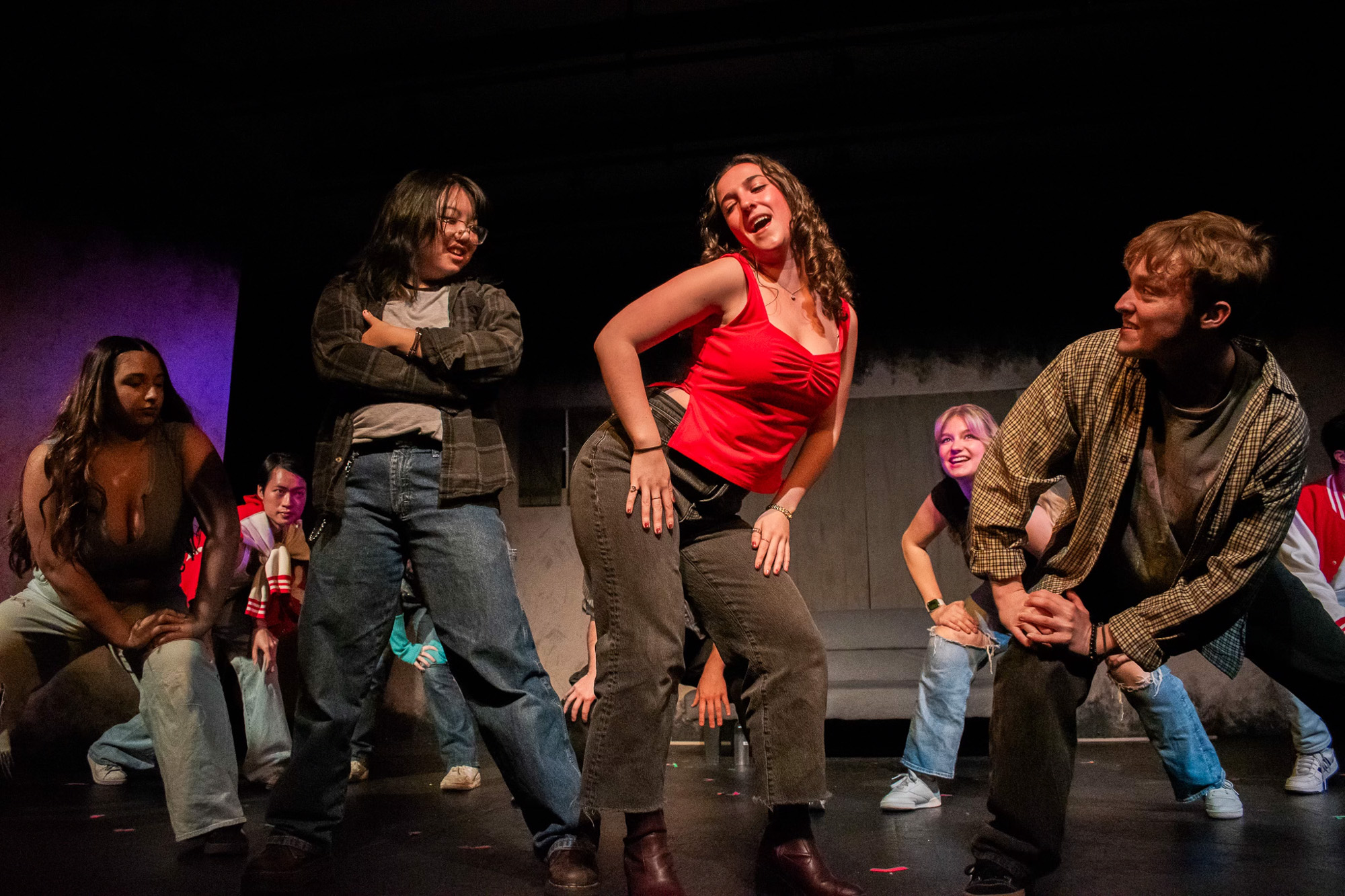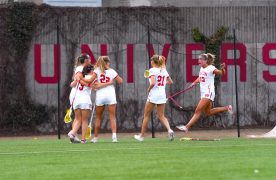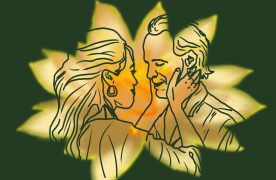What started out as a light-hearted teen drama slowly took a dark turn as the intersection of religion, shame and blame echoed throughout the choruses of “Carrie: The Musical.”
Members of Stage Troupe, Boston University’s oldest extracurricular performing arts group, brought this haunting tale to life at the Student Theater at Agganis Arena from Oct. 31 to Nov. 2.
Carrie White, a 17-year-old played by BU senior Annalise Ilg, is the target of incessant bullying from her peers. Dressed in knit sweaters and baggy skirts, she faces torment each day at school about her appearance, her demeanor and everything in between.
White’s biggest bully — spiteful queen bee Chris Hargensen, played by senior Jess Kaplan — does everything possible to make Carrie feel unwelcome. Kaplan perfectly displayed Chris’s viciousness with her harmonies and catchy lyrics that reflect her feelings of superiority.
Stage Troupe’s show was filled with memorable songs and carefully crafted choreography. Innovative costumes, including prom dresses and sports jerseys, reflected the milestones of high school.
Carrie lives at home with her isolated and deeply religious mother, Margaret White, played by junior Lauren Kelly. Margaret infringes upon Carrie’s autonomy by infantilizing her and limiting her ability to make connections and establish her own self-reliance.
Kelly’s portrayal of Margaret was a troublingly accurate manifestation of the gender constraints imposed on women, and I was overwhelmed with how overbearing she acted towards Ilg in this regard. Her acting was phenomenal and extremely realistic.
After Chris receives detention for one of her more harrowing acts toward Carrie, she sets out for revenge at the school prom.

Carrie gradually discovers she possesses telekinetic superpowers — and finds her inner strength. She realizes that no one can tell her what to do, and she is more than the constraints of her upbringing.
After Chamberlain High School’s most popular jock, Tommy Ross, played by sophomore Aidan Fairchild-Sandoval, asks Carrie to the senior prom, she defies her mother’s wishes and attends.
Tommy is convinced to invite Carrie to prom by his girlfriend, Sue Snell, played by junior Justina So, after she feels remorseful for participating in bullying Carrie. Sue is the catalyst for the remaining events of the show, as she believes that Tommy taking Carrie to prom will amend her actions while empowering Carrie to build confidence.
Though Sue wants to fit in, she disagrees with imposing cruelty to achieve a sense of belonging, even if her actions do not always show it.
So was powerful and uplifting as Sue, evoking empathy and understanding for those who have made mistakes but are willing to grow from them.
Tommy, initially weary of Sue’s request, reluctantly agrees to ask Carrie to prom. Fairchild-Sandoval’s performance was genuine, encouraging and compassionate, a convincing example of the gift of not caring about other people’s opinions.
Just as Carrie’s life seems to improve, Chris deploys her revenge prank — dumping pig’s blood on White. The scene was painfully disheartening, a testament to the cast’s phenomenal portrayal of cruelty.
The prom was overshadowed as Carrie deploys her superpowers to end her mistreatment for good. The cast synchronously fell to the floor, and Carrie killed the tormentors who caused her so much pain.
The ensemble was filled with talented and engaging actors, who danced up and down the theater onto the stage. They effectively portrayed the cruelties of high school bullying while eventually confronting the consequences of their actions.
Carrie speaks and her words are dismissed. She asks for help and is blamed for her problems. She attempts to find her voice and is silenced.
I left the show thinking about how female characters are portrayed in media outlets as weak or crazy for simply wanting more. This often occurs for many female characters who face hardship while trying to stand up for themselves.
Ilg’s performance tactfully illustrated this dynamic. The emotion portrayed onstage through song and dance opened a conversation around autonomy in the context of growing up. Carrie’s feelings of entrapment heartbreakingly brought to light the importance of allowing young people to live on their own accord.
I wanted to advocate for Carrie. As Ilg’s adaptation unfolded in front of me, I found this gradually more difficult after observing the paradoxical destruction she caused to others as a result of her own struggles. Ilg’s portrayal evokes empathy in the audience for the severe impact bullying can have on an individual.
BU Stage Troupe brilliantly demonstrated the pervasiveness of cruelty and addressed morals that should prompt us all to reflect on our behavior towards others. There is power not only in telekinesis but also in being kind.













yippeeeee thanks for the kind words!!